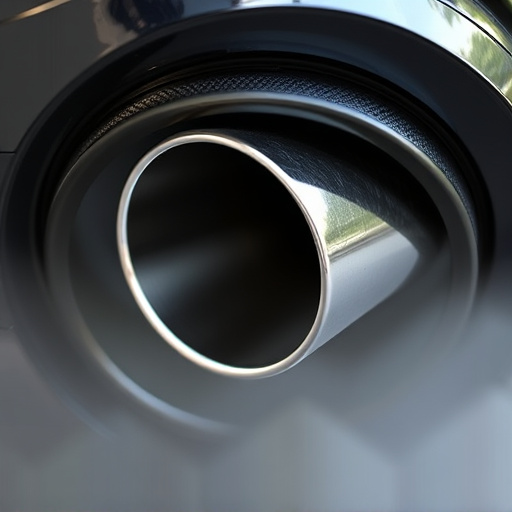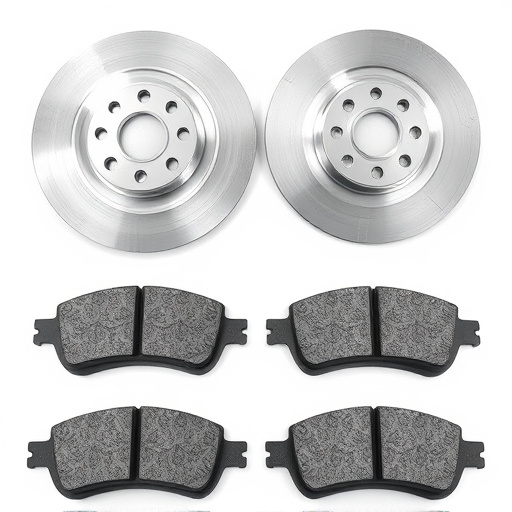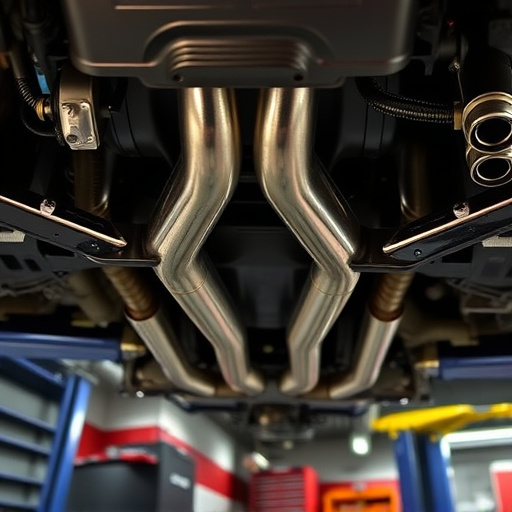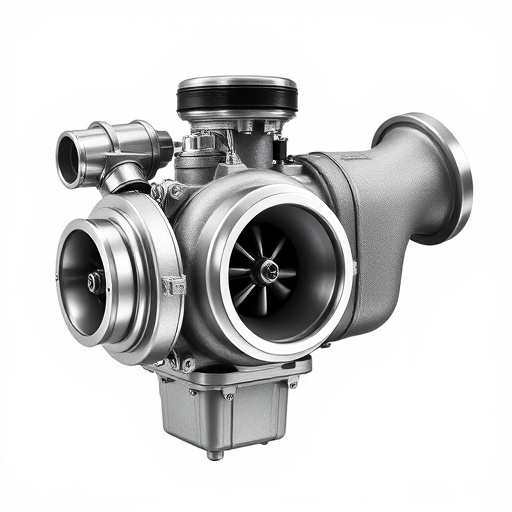A resonator delete is a performance modification that removes or alters exhaust system resonators, resulting in a sportier exhaust note and potential power gains. Popular among track enthusiasts, it can enhance driving experience and lap times but has legal and practical implications. Increased noise levels may disturb others, and altered sound feedback could impact suspension components. Regular maintenance and compliance with local regulations are crucial for safe and long-term use.
“Uncover the power of a Resonator Delete and its dual role in automotive performance. This comprehensive guide explores the concept, delving into its distinct applications on tracks and city streets. Discover how removing the resonator can enhance engine sound and boost power for track days, while also considering the practicalities and legal aspects for everyday street driving. Whether you’re a racing enthusiast or urban commuter, understanding resonator delete options is key to optimising your vehicle’s potential.”
- Understanding Resonator Delete: The Concept and Its Purpose
- Resonator Delete for Track Use: Advantages and Considerations
- Street Driving with Resonator Delete: Potential Impact and Legal Implications
Understanding Resonator Delete: The Concept and Its Purpose
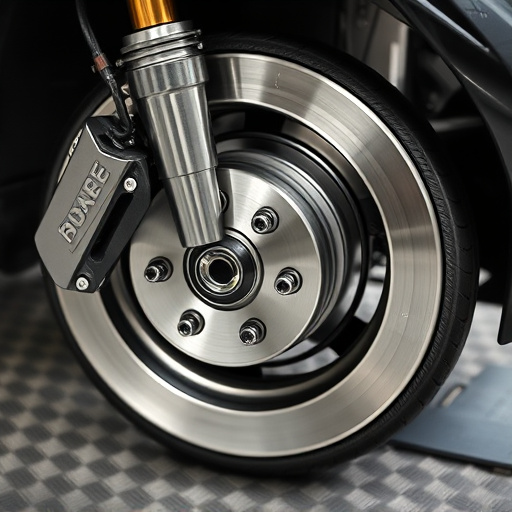
A resonator delete is a modification that involves removing or altering a resonator within an exhaust system, primarily for performance purposes. The concept is straightforward: by eliminating the resonator, certain sound frequencies are no longer absorbed, leading to a more aggressive and sportier exhaust note. This change can significantly impact the overall driving experience, especially in vehicles designed for track use where driver engagement and feedback are paramount.
The purpose of a resonator delete is to enhance the performance characteristics of a vehicle’s exhaust system. On tracks, drivers often seek improved engine sound as a way to gauge power delivery and turbo charging. With a resonator delete, the removal of this component allows for better airflow, potentially increasing horsepower and torque. Additionally, it can contribute to improved braking efficiency, as adjustments to exhaust systems often involve modifying brake components and enhancing their overall performance, especially in conjunction with performance brakes.
Resonator Delete for Track Use: Advantages and Considerations
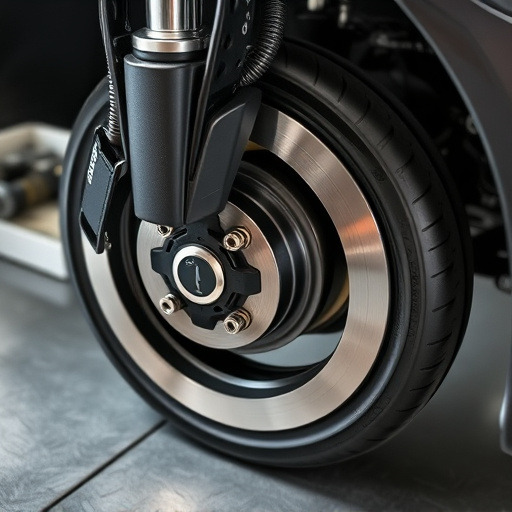
For track enthusiasts, a resonator delete is a popular modification that offers several advantages. First and foremost, removing the resonator can significantly enhance engine sound, creating a deeper, more aggressive note that many track-focused drivers appreciate. This change also has performance benefits; by eliminating restrictions in the exhaust system, it allows for better gas flow, potentially increasing horsepower and torque. As a result, lap times may improve, providing drivers with a thrilling and responsive driving experience.
When considering a resonator delete for track use, it’s essential to think about maintenance and long-term effects. Unlike street-legal vehicles, track cars often undergo intense use, so ensuring that the exhaust system can handle the increased strain is crucial. While it may not directly impact performance air filters or air intake systems, proper installation and regular maintenance are vital to prevent potential issues with brake pads and other components due to excessive heat and wear.
Street Driving with Resonator Delete: Potential Impact and Legal Implications
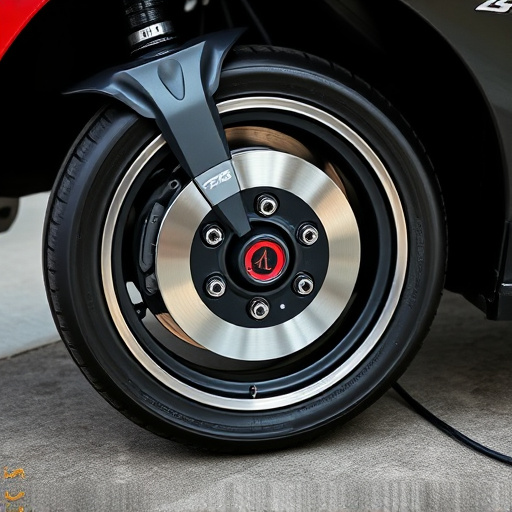
Street driving with a resonator delete can significantly alter the sound and performance of your vehicle, especially if it’s equipped with a modified exhaust system or cold air intake. While some enthusiasts appreciate the deeper, sportier exhaust note this modification offers, it’s crucial to understand the potential impact on your daily drives. Removing the resonator may result in increased noise levels, particularly at higher RPMs, which could be disruptive to other drivers and neighbors, especially in urban areas.
Moreover, legal implications must be considered. Many regions have strict regulations regarding vehicle noise levels, and excessive exhaust noise can lead to fines or legal action. Ensure that your local laws permit such modifications, and always use appropriate noise-reducing components if required by law. Even with these precautions, a resonator delete could still impact the overall driving experience, affecting suspension components due to changes in engine sound feedback and potentially increasing wear on certain parts over time.
When considering a resonator delete for your vehicle, whether for track or street use, it’s crucial to weigh the benefits against potential drawbacks. For track enthusiasts, a resonator delete can enhance performance and sound, but it’s essential to comply with racing regulations. On public roads, the legal implications must be thoroughly understood, as modifying exhaust systems can impact noise levels and safety standards. By carefully evaluating these factors, car owners can make an informed decision about whether a resonator delete is the right choice for their driving needs.





